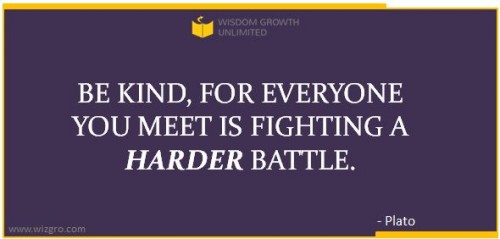11 mins read . by Sandeep Mahagaonkar . August 14, 2015

One pivotal aspect on which businesses rely on today is the value a service or a product brings to its customers. However, it’s not just the value that delights the customer, but many other aspects that span beyond the value proposition. Certain experiences are shared at every touch point between the business and the customer. These experiences could be related to how the quickly was the product delivered; how efficiently the corporation responded to a complaint; how the service attendant conducted himself or herself while attending to a request; whether the product works as per the specifications…. and many other factors.
Businesses today – big or small – if they are to survive in the present competitive environment need to do more than just satisfy the customer. They should orient themselves towards delighting them. The philosophy that businesses need to adopt is: To attract new customers, delight existing ones – not just merely satisfy them. Once that happens, viral marketing kicks-in and the customer virtually joins the corporations marketing bandwagon (without a salary that too!) to propagate the greatness of the service or the product. This viral marketing, in other words is called word-of-mouth-marketing (WOMM) – and is an extraordinary powerful tool.
“Viral marketing seems like the ultimate free lunch: Pick some small number of people to seed your idea, product, or message; get it to go viral; and then watch while it spreads effortlessly to reach millions.”
– Duncan Watts; Jonah Peretti
It’s rather unfortunate that many businesses lose focus of their customers once the sale is made. It’s always challenging to find new customers; hence corporations aggressively deploy their troops in getting new deals. But what about the existing ones? Are they no longer important? Don’t they deserve the same attention that a prospective customer receives? Of course they do! In fact, they deserve greater attention than a prospective customer for a simple reason:
“It costs 6 – 7 times more to acquire a new customer than retain an existing one.”
– Bain & Company
So, when businesses understand that it is critical to keep existing customers happy, why do many corporations struggle with this? Why aren’t strategies devised to ensure customer delight becomes the DNA of everything the corporation does? The simple answer is that it’s not easy. There are many people within a corporation who serve as customer touch points – as representatives who talk or deal with the customer directly (and in certain cases indirectly – as a back office representative supporting customer facing roles). The CEO or the board or any high profile leader of the corporation are not the only people responsible to keep the customer satisfied, happy and delighted. The corporation might internally preach customer delight as a core value and might go great lengths talking about importance of this, but unless people at all levels imbibe this value and reciprocate these thoughts of the leadership team, it’s difficult to create the desired outcome. The simple question for each employee to ask of himself or herself is “If this were to be my company, how would I treat my work and my customers?”

To demonstrate how customers experience a negative opinion (opposite of customer delight) about a corporation, let’s imagine you buy a new car and you merrily drive it around for a few days. You are delighted about your choice and the machine gives you an adrenaline rush every time you bring its engine to life. A few days later, when you are still in high mental celebration, your car develops a technical snag and refuses to start on cold mornings.
Dejected, you decide to deposit your car at the service center and the technician who’s assigned the job of rectifying the problem is impolite in his talks. Moreover, he doesn’t give you a clear indication of what the problem is and dismisses most of your remarks. You are annoyed of his behavior and decide to escalate the issue to his manager. Unfortunately, the manager too turns a deaf ear to your complaints and quips that he needs to service hundreds of cars daily and that yours will be looked it to at an appropriate time. Frustrated, you take the car back and swear that you’ll never drop the car at this service center and vouch that you’ll never buy a car manufactured by this corporation again!
Hang on! What happened? You just had bad experience with one or two people from a huge corporation. Why be overly critical about the whole thing? Perhaps for 8 such unprofessional employees in the corporation there may be 2 extremely professional folks whom you couldn’t get across to (applying the 80/20 rule). None of this seems to matter or resonate with you – reason being – when a person represents a corporation, he represents the values and culture of the corporation. A loose talk or an irresponsible action can only damage the trust a customer has on the corporation and he or she could potentially bid adieu forever.
“96% of unhappy customers don’t complain, however 91% of those will simply leave and never come back.”
– 1st Financial Training services
If you are like anyone else, it’s highly unlikely that you’ll keep this experience buried inside your gut. You would, in all likelihood, decide to share this bad experience with your contacts. When you do, would you say person A and B from corporation X are unprofessional wolves? It’s unlikely. Instead, you’d blame the service center in particular and then the corporation in general – but rarely the people you dealt with who gave you a bad experience in the first place. You’ll tell your contacts not to even sniff any product from this particular corporation.
“A dissatisfied customer will tell between 9-15 people about their experience. Around 13% of dissatisfied customers tell more than 20 people.”
-White House Office of Consumer Affairs
After this episode, no matter how much the corporation tries to woo you into their new, improved, reorganized, customer oriented service model, you will, almost certainly, turn a deaf ear to them.
“It takes 12 positive experiences to make up for one unresolved negative experience
– “Understanding Customers” by Ruby Newell-Legner

Gowri Nivas is one of the popular homestays in Coorg – located 250 kms south-west of Bangalore. I had taken a week’s break from work and had decided to spend a few days in solitude before resuming my official duties. I did not have high expectations about the place (I always keep my expectations on the lower side to avoid any disappointment later) and had just hoped for a pleasant stay.
However, I got more than what I had expected. No, there was no pomp or show or any exaggerated customer pleasing antics on the part of the owners of the place, but just a powerful strategy – to keep things simple! This is what Bops (the owner of the place) recounted during one of my discussions with him – that delighting a customer is in keeping things simple and the fundamentals intact.
As I landed at Gowri Nivas, Bopanna (Bops, as he is fondly called) walked out to greet me. He politely enquired if my journey was safe and then led me to the cottage where I was to spend 3 days of my idyllic existence. As I marveled the rustic charm of the place (Gowri Nivas is a century old property that has been slightly reconstructed), Bops asked me if I’d prefer to have some coffee. Perhaps he didn’t know, at least then, that I hardly say no to coffee. I was served coffee in a few minutes and it was lovely!
I’ve captured below seven experiences of my stay that made me feel a valued customer. These conversations and experiences are nothing extraordinary, but what makes them print indelible impressions are the way in which they were handled.
Anything you need, we are a stone throw away!
Many of the hotels or homestays (a private house of a local family that offers accommodation to tourists) that I have been to in the past, make similar statements. As a customer, one can clearly make out whether it is a statement made from the manual or from the heart. My experience is that such statements are made based on the training imparted to individuals and unless the interpersonal aspects are understood, these remain bland statements that don’t carry any emotions. Bops, when he made this statement to me, I could clearly tell, came straight from his heart! He wanted to ensure that I – as his guest – have a comfortable and pleasant stay.
For Bops, it was all about doing the basics right. I was served coffee on arrival and was served more coffee when I asked for it (for free, although the guidelines sheet placed in the room stated I will be charged for additional orders), even when there was a coffee maker in the room. I was never reminded there was one in the room, but every request was obliged.
Lesson learnt: Under promise and over deliver.
Let’s go to our estate. I’m sure you’ll unwind.
When I was taking about my work and the stress it induces at times, Bops mentioned he knew exactly what I would be feeling like (he’s been a corporate guy himself for a few years) and asked me to join him for a trip to his estate where they grow coffee.
When I enquired of the time he wanted me to be ready for the trip, he asked me to have a good night’s sleep first and then have breakfast the next morning leisurely. Then whenever I felt comfortable, he would drive me down to the estate. He told me it will be a great stress buster and the temple in the estate serves delicious food. Sure enough – the drive rid the mind of the stress and the food satiated the stomach of hunger.
Lesson learnt: Customer Empathy – Understanding how the customer feels.
Oops! I’ll get it sorted in 30 minutes.
I was working on the design of the Wisdom Growth Unlimited website in the cottage, when the power suddenly snapped. It appeared to be an electrical trip. The laptop that I had carried drains its batteries fast (so fast that it can put Usain Bolt’s 100m run to shame) and requires a constant source of electrical supply. Anxiously, I informed Bops of the problem and requested for a resolution. I said I’ll be glad if he can fix it in the next hour (so that the batteries won’t be replete of power). Bops told me it’ll take him at least 30 minutes to fix the issue. I was OK with that.
As I returned back to work, the power was restored in just 10 minutes. I checked with Bops how he managed it so quick. He told me he summoned the electrician to drop over immediately as he sensed I was doing something important. I was mighty pleased and thanked him for the kind consideration.
Lesson learnt: Feeling customer pain and addressing it.
Had your dinner? No, we were waiting for you.
When I had arrived, I was told that dinner would be served at 8.30 pm. I was fine with the arrangement and mentioned that I would join them on time. I however ended up joining them an hour late and was surprised to know that Bops and Muthu (Bops’ wife) were waiting for me to arrive and had not had their food. I sincerely apologized on being late and was perplexed to know they were waiting on me.
They expressed that it was absolutely fine and they normally wait for the guest to arrive and have food first before they start.
Lesson learnt: Put the customer first in everything you do.
Wanna pay after your stay – no problem!
It happens very rarely that a guest pays for the stay a day after the checkout. This is exactly what happened at Gowri Nivas. My entire payment was due and my card didn’t seem to respond very well. Bops asked me not to worry and return back safe. He asked me to do a net-banking transfer sitting comfortably at home. I assured him I would do so and checked out.
Lesson learnt: Trust the customer.
Oh God! I hope we were not too loud.
As I sat in the cottage, working on a piece of article that I was writing, I heard a few loud conversations outside. I peeked outside and saw Bops and Muthu taking to a landscape designer about redesigning their garden. They chatted for about 40 minutes and left the place. Later that evening, during dinner, I checked with Muthu what plans they had for the garden. Muthu gave me a shocking stare and asked if I was in the cottage during that time. I acknowledged I was. Muthu apologized for being unmindful of the fact that I might be in the cottage during that hour (typically tourists go out on sight seeing expeditions during the day). She checked with me (very sincerely) if their conversation was no too loud, and if I was disturbed by their chatter. I mentioned it was absolutely all right and I wasn’t disturbed at all.
Lesson learnt: Acknowledging customer inconvenience caused due to neglect.
Sandeep’s friend? Then you are our friend.
Once I returned from my stay, I mentioned to a friend of mine over phone how delighted I was to have stayed at Gowri Nivas. Impressed, he called up Bops to check for availability on a particular date and happened to mention that I had given him the reference of this place. Bops apparently quipped that he would be more than happy to host him as a friend since an earlier guest (and now a friend, wow!) had referred him. My friend visited the place and came back equally delighted.
Lesson learnt: Extending a relationship beyond the contract.
To a large extent, through this article, I am doing viral marketing of Gowri Nivas. No prizes for guessing the reason – I am their delighted customer.
P.S: All the facts used in this article are referenced from this site.







